I Thought We Moved Because of My Husband’s Job, but the Truth Was Disgustingly Dark

You’re an adventurer looking for a golden hourglass hidden in the jungle of an exotic country. You finally find the artifact. Someone starts shouting as soon as you grab it. “Stop! This is the police! Hands up!” You look around and see two officers. You turn the hourglass over and fall into a suddenly formed portal that takes you through space and time.
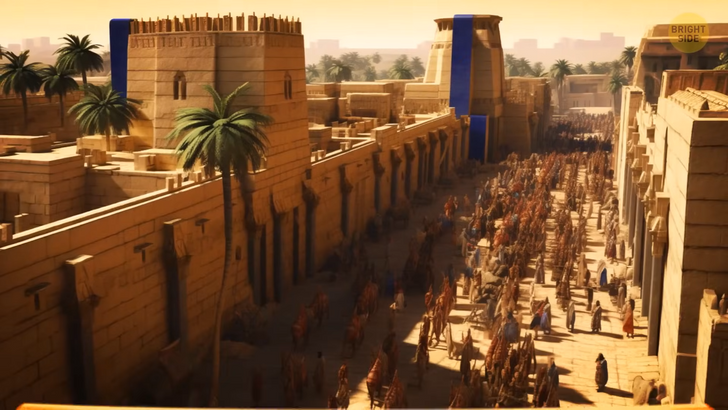
“Hey you, stranger! Don’t move! What are you doing in our temple?” You look around and see two guys with swords. They’re the police of ancient Babylon. The vast kingdom in Mesopotamia was the first in history to invent a list of laws and punishments for their violation.
The list of these rules was called the Code of Hammurabi and contained 282 laws. They were carved on stone pillars around the 10th century B.C.E. The laws had rules about the family and behavior in society and, generally, were similar to the laws of modern civilizations. The authorities of Babylon created special police squads consisting of locals. Their goal was to monitor public order and ensure no one broke the law.
Some records of the squads’ work have survived to this day. They talk about how the ancient police stopped noisy feasts, monitored tax payments, and searched for thieves and looters. In general, their routine was similar to the routine of the modern police. They guarded temples and made sure that nothing was taken from them. You’re now in their temple, holding the golden hourglass. The sand pours down, and you teleport to another place.
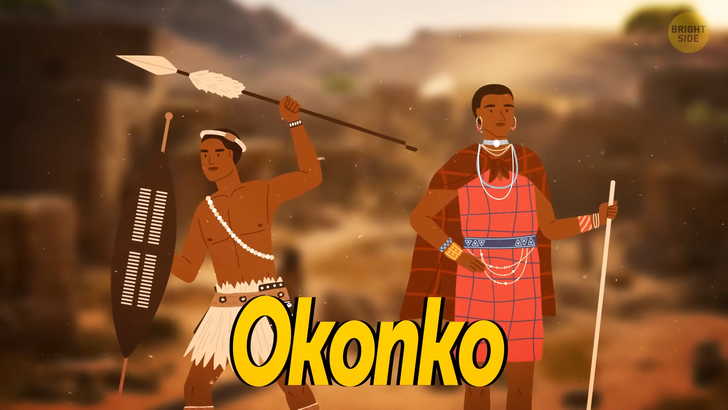
It’s the 14th century. You’re in Nigeria, on a hot plain under the scorching sun. You hear someone approaching you from behind! “Stop! Don’t move! Your fate will be decided at the meeting!” Two Okonko guards, members of the Igbo ethnic group, walk to you holding spears. Okonko consisted of rich and poor people, young and old. They were the judges of justice and ensured that no one violated the laws.
Each village had its own Okonko squad. They severely punished those who cheated or harmed other people. Okonko also solved land disputes. Before passing a verdict or sentence, Okonko discussed it at public meetings. You haven’t broken their law, but you’re a stranger in their village, so they want to grab you. Fortunately, the hourglass teleports you out of here.
You’re inside a temple in Ancient Egypt. You hear barking dogs, screaming monkeys, and human voices. “Who are you?” You turn around and see the Medjay — the police of the Middle Kingdom of Ancient Egypt. These experienced guys with swords patrol the streets with dogs and even monkeys. They were residents of the neighboring kingdom of Nubia. Still, as the territory of Egypt expanded, they offered their services as the guardians of order.
During the New Kingdom, the Temple Priests of Egypt performed police functions. They protected temples and caught looters and thieves. If someone stole something from a temple, Temple Priests arrested the thief and conducted their own investigation. They won’t investigate anything this time as you disappear and continue your journey.
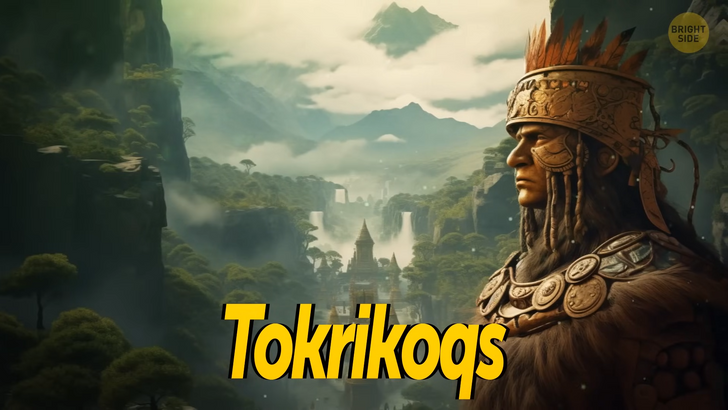
You’re in a hot jungle now. You can see large stone buildings through bushes and trees and hear a flowing river and people’s voices. You’re next to a large agricultural area. It looks like a modern civilization in a tropical forest. But this is the 15th century, and you’re in the Incan Empire on the South American coast. Police officers are called tokrikoqs here, which means “the one who sees everything.”
Two tokrikoqs pass by you and don’t tell you anything. The Incan Empire had a developed legal system, and no one could arrest you just like that. The one who accused another person of violating the law had to be above the rank of the accused. Therefore, tokrikoqs were the most senior people in cities. They kept order and also conducted a population census.
Their duties also included the distribution of land and the construction of roads and bridges. They held all court proceedings publicly and punished those who committed serious violations. But for petty hooliganism, people were just subjected to public censure. Here you feel safe thanks to the harsh but fair laws. But the hourglass is restless and takes you to...
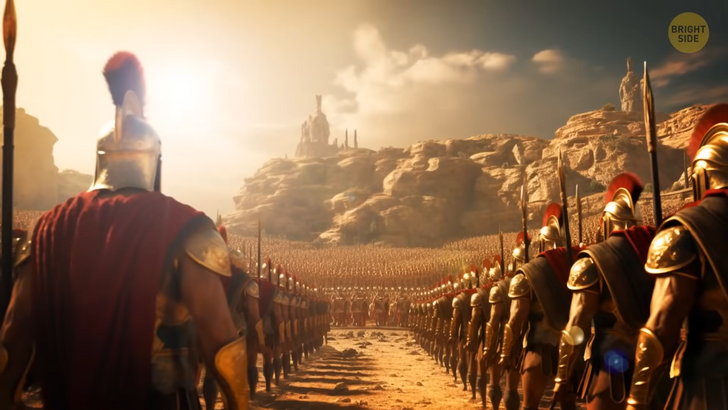
Ancient Greece. And to be honest, you’re out of luck because the Krypteia of Sparta is in charge here. These tough guys got trained in duels from an early age and developed incredible strength and endurance. Yeah, everything is as we have seen it in the movies. The Krypteia means “hidden.” This police always acted cautiously and quietly to deliver a crushing blow. They didn’t have armor or big swords. They were wearing light clothes and had sharp knives.
The Krypteia kept order and made sure farmers paid taxes and shared their harvest. Also, the Krypteia suppressed any rebellions among people. Unlike the police in other countries, the Krypteia worked at night and rested during the day. It’s daytime, so no one will arrest you. But if it were night, you would hardly be able to escape from the Spartan police.
You teleport to ancient Judea, where a fair judicial system was highly valued. Each city had its judge and two trained soldiers under their command. They were called Judaean Shoterim. These fighters were excellent at archery and sword fights. Their duties included checking and setting market prices and resolving private property and public safety issues. Dogs in every house should be chained, there should be no pits on the streets, and the sale of knives and swords should be strictly regulated. Any violation of the law was investigated and dealt with in court. The locals really appreciated this order and paid for it as taxpayers.
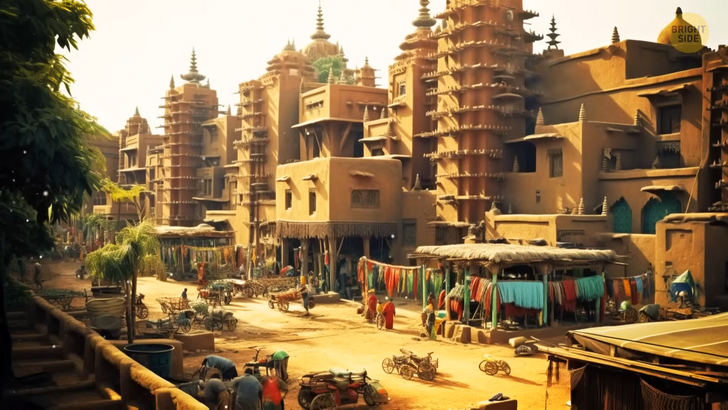
The golden hourglass takes you to 15th-century West Africa. You’re in the Songhai Empire! This was one of the largest countries in West Africa with first-class police called the Cadi. Serious violations were punished cruelly, so people were afraid to break the law. The Cadi were government officials appointed by the King. They decided who to court-martial and who to punish with a small fine. They monitored not only the order in cities but also the environment of the King. If someone wanted to commit treason or overthrow the ruler, the Cadi found out about it and neutralized the threat.
You find yourself in a very hot place. But not because the sun is scorching, but because there are flames everywhere! The building you’re in is on fire, and you don’t know what to do. At that moment, two guys run inside and pull you out. They’ve just saved your life. Meet the Vigiles — the Police of the Roman Empire. More precisely, they were firefighters.
In 21 B.C.E., the Roman Emperor ordered his subjects to extinguish fires in the homes of the nobility and ordinary poor people. For this, the Emperor received praise and decided to create the first public fire service in Rome. The Vigiles patrolled the streets and extinguished fires caused by hot weather or hooligans. Soon the Vigiles began to keep order and catch robbers. They wore light armor and had whips and staffs. You don’t have time to thank them for saving your life because the hourglass takes you to another era.
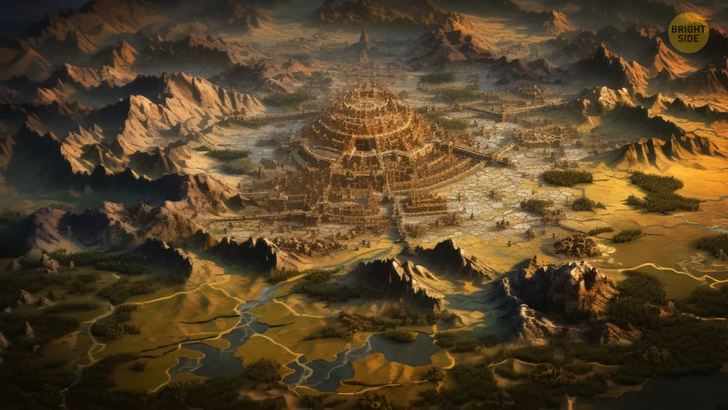
The Mauryan Empire, which lasted from 321 to 185 B.C.E., was the first Empire of Ancient India. You don’t have time to do anything as two big guys grab you and blindfold you with a rag. They’re taking you to interrogation.
Every city in this state had a police chief and his team called gops. They did all the police work and spied for the Emperor. They looked for other spies, registered new visitors, and followed them. They patrolled the streets, kept order, and knew everything happening in the cities. They’re going to put you in a cage, but you disappear right from their hands. You’ve finally returned to the 21st century. There’s no more sand in the top part of the hourglass.
So you ponder committing a small robbery to see how modern-day police will respond. But then the hourglass reappears and drops you into prison, so you can get a close-up view.
Then, you wake up...











